Campgrounds vary a lot in what they offer. They can have simple backcountry sites with almost no amenities, groomed sites with loads of on-site services, or something in between.
This variation can make it hard to choose the right campground. You’ll have to look at these 9 things to make sure the campground matches your style of camping.
1. What type of campground do you want?
Campgrounds can be broken down into four main types based on the experience they offer. See this to know what type of camper you are.
Backcountry Campsites
Backcountry campsites are usually first come, first serve and are free or only require a small permit fee. It is great for budget camping. You will need to hike into the camp, so be ready to carry everything. You’ll also need to be self-reliant for things like water treatment, hygiene and safety.
State and National Park Campgrounds
These are usually located close to scenic destinations and hiking trails within their parks. You can expect some basic amenities like water spigots and bathrooms and a ranger available for assistance. Average costs are $15 to $25 per site, per night.
The downside of Park campgrounds is that they book up far in advance. They tend to have stricter rules, such as campfire bans. There will be fewer shopping and dining options than if you camped closer to town.
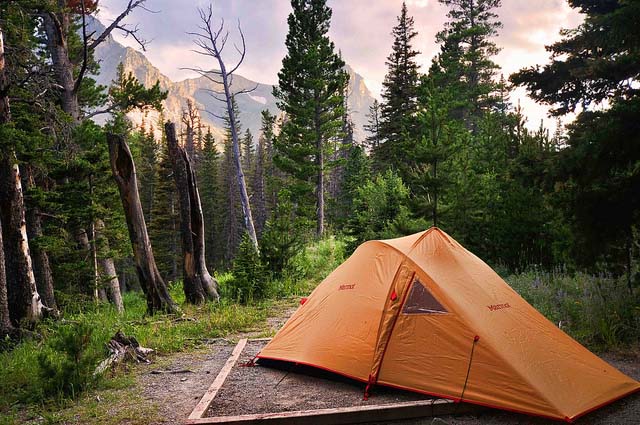
Cut Bank Campground in Glacier Park has 14 plots, is accessible by dirt road, doesn’t have potable water or flush toilets, but offers views in a secluded environment.
Private Campgrounds
Private campgrounds, such as those run by KOA, have more amenities as well as activities like pools, kayak rentals and guided tours. Costs are usually $25 to $40 per night. Electric hookup is sometimes paid as a separate fee of approximately $5.
Be warned that the amenities offered at private campgrounds varies drastically. Go through the questions below to fully vet the campground ahead of time!
RV Campgrounds
RV campsites are typically more expensive because they require more amenities. The sites need to be larger and sound pollution from generators is problem for nearby campers. Expect to spend $25 to $60 per night to RV camp, plus extra fees for things like electric and dumping.
Premium Campsites or Glamping
Some campgrounds offer resort-like services and amenities. Prices are typically per person and include lodging with the camp’s gear and meal services.
2. Where Is the Campground Located?
If you want to have a wild experience, then look for a campground which is a bit off the beaten path. It won’t be as crowded. Bonus: Look for a campground with a good view!
If you are more of a recreational camper, then choose a campground which is located closer to town. You’ll have more restaurants and stores nearby.
***Pay attention to whether the campground is located right off a freeway or other major motorway. These are sources of noise pollution!
3. How Big Is the Campground?
Big and small campgrounds each have their own pros and cons. When choosing a campground, keep these in mind:
Big Campgrounds:
- Other campers to socialize with (especially nice for kids)
- More amenities
- Organized activities
- Loud and crowded
Small Campgrounds:
- More natural camping experience
- Quiet
- Few amenities
4. How Big Are the Campsites?
In addition to the size of the campground, look at the size of the actual campsites. Larger plots are better for privacy and quietness.
Don’t assume large campgrounds have larger sites. Some really crowd tents into small plots.
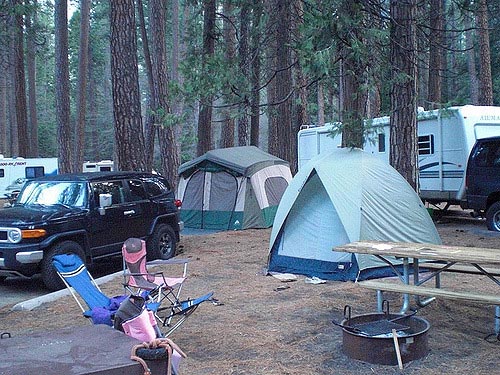
A CROWDED campground with small sites in California.
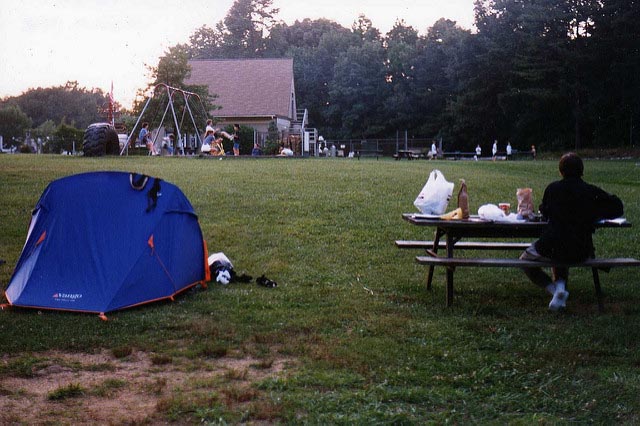
Capitol KOA campground in Maryland: Not much privacy or a natural experience – but there are activities and amenities.
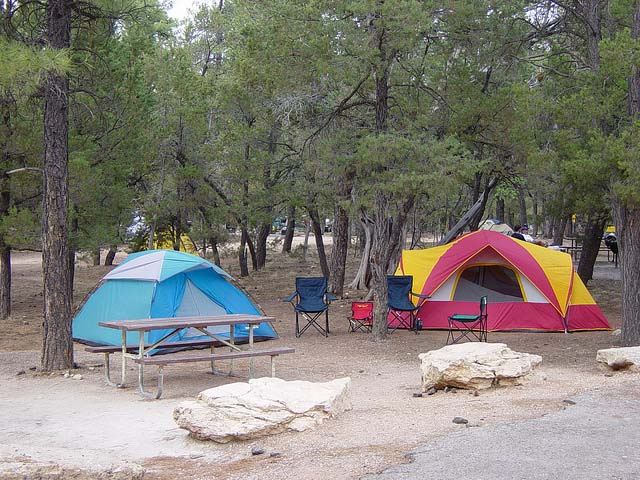
Mather campground (above) on the rim of the Grand Canyon offers decent-sized campsites so you get some privacy.
Bonus: Can You Pick Your Spot?
Some campgrounds let you choose your campsite. They provide a map of the plots and you pick which one you want during booking.
Pro Tip: Choose a campsite 5 or 6 sites away from the bathroom. That’s close enough for midinight pee trips, but not so close that there’s always traffic near your site!
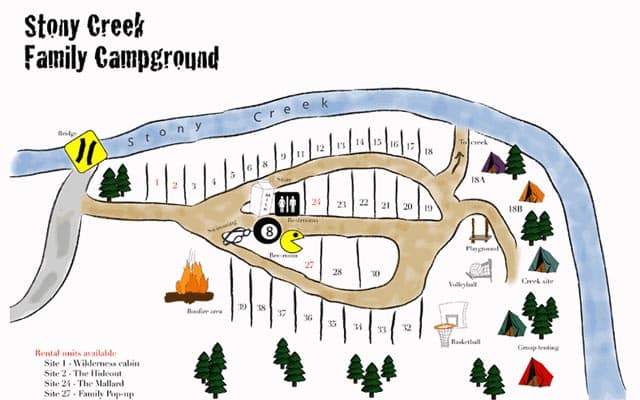
Map of Stony Creek campground in NY, one of my favorite camping spots growing up. We’d reserve the site right next to the creek and would play in it all day.
5. Where Are the RV Campers?
If the campground allows RVs, where are they in proximity to your tent? RVs close by means you might hear loud generators all day. RV campers are also more likely to have radios, laptops and other screens which cause noise pollution.
6. What Are the Campground Fire Rules?
For me, the best part of camping is making a campfire. Unfortunately, this isn’t allowed at every campground – especially in places where there’s a risk of forest fires. So check this carefully before you go!
Even if campfires are allowed, consider how you will get wood. In many large campgrounds, the sites don’t have many trees and any fallen branches are cleared quickly. So, you’ll have to bring your own firewood or buy it from them. It’s an annoying extra expense!
7. What Amenities Are Offered?
The first amenity to look at is the bathrooms. Campground bathrooms are notoriously bad. Large camps should have multiple bathrooms to reduce crowding.
Search for “bathroom” in campground reviews. This will give you a clue to how clean/dirty the bathrooms really are.
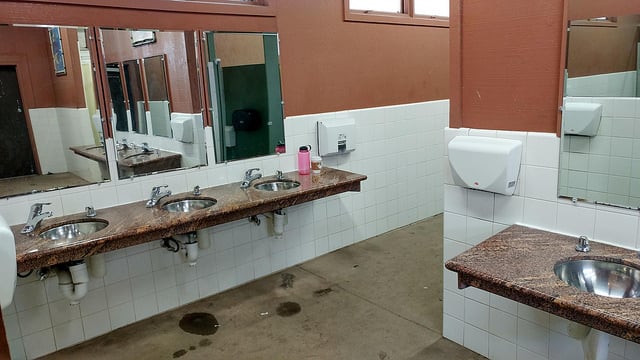
The bathroom in Camp Curry in Yosemite
Other Amenities and Services
Depending on the experience you want to have, you may want (or not want!) any of these amenities. For example, I actually try to avoid campgrounds with WiFi because I don’t want to be annoyed by campers watching videos on their laptops or talking incessantly on their phones.
Common Campground Amenities
- Potable water
- Hot water
- Showers
- Laundry
- WiFi
- Electric hookups
- Grills
- Picnic tables
- Equipment rental
- Pool
- Restaurant/cafe
- Store
- Guided tours
- Playground
- Games
8. What Are the Campground Rules?
Don’t forget to read the rules before booking a campground. There might be some rules which make or break your stay. Particularly these rules…
- Check-in/checkout times
- Whether pets are allowed (and if they are required to stay on a leash)
- Noise curfew
- Guest policy
- Sleeping in your car allowed or not
- Riding bikes at the campground
- Food storage rules
- Firewood collection
9. How Much Does the Campground Cost?
Campgrounds cost typically cost $15 to $55 per night. The price can vary drastically depending on how popular the area is and amenities offered.
Extra Fees
In addition to the nightly camping fee, some campgrounds charge these fees:
- Cost per vehicle
- Additional person fee
- Electric hookup fee
- Pet fee
- Fire pit rental
Need help budgeting your trip? Read how much camping costs: a complete breakdown.
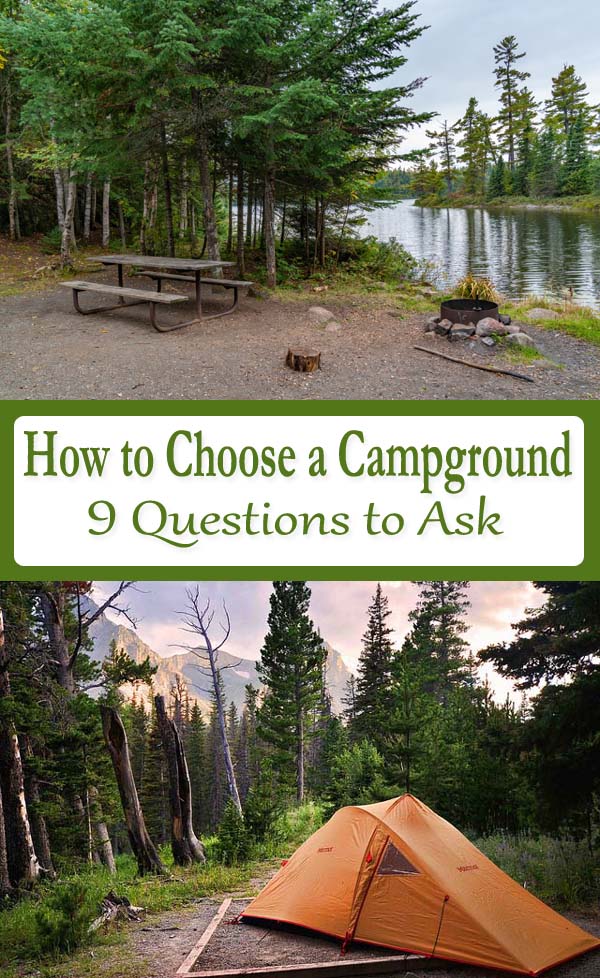
Image credits:
“Esther Lake Campground, Minnesota”, https://www.flickr.com/photos/diversey/30829578578/, (CC BY-SA 2.0) by Tony Webster,
“D0422 Grand Canyon_Campsite at Mather Ca” (CC BY 2.0) by Grand Canyon NPS,
“CIMG3007” (CC BY-NC 2.0) by number657,
“Cut Bank Campground” (CC BY 2.0) by jonathanw100,
“Writing postcards …” (CC BY-SA 2.0) by wallygrom,
“Camp Curry / Half Dome Village Bathrooms” (CC BY-ND 2.0) by osiristhe
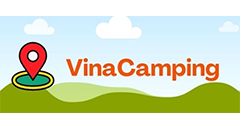

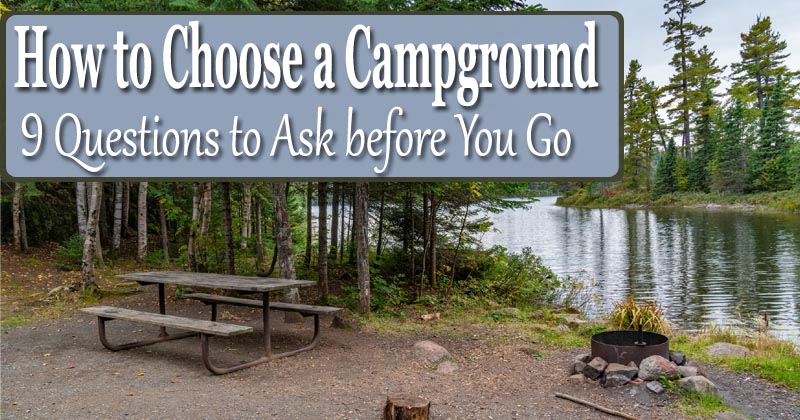
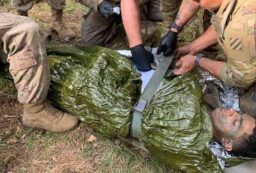
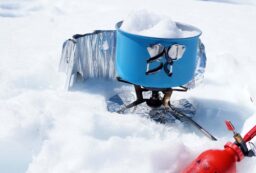
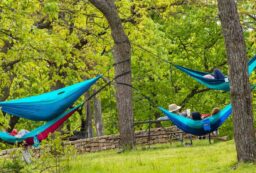
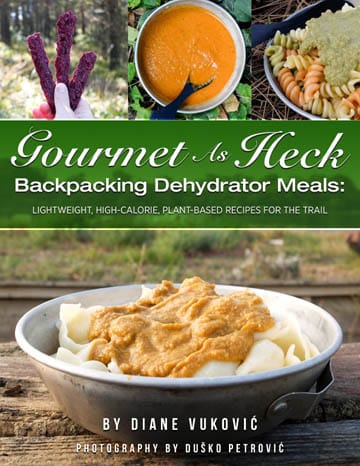
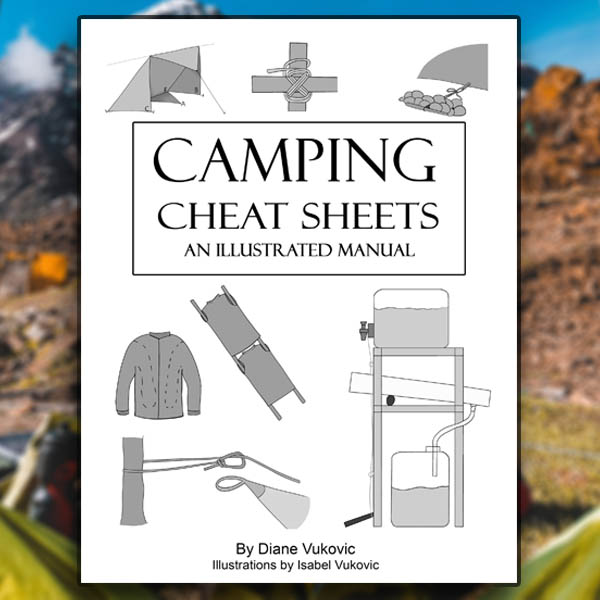





Post your comments